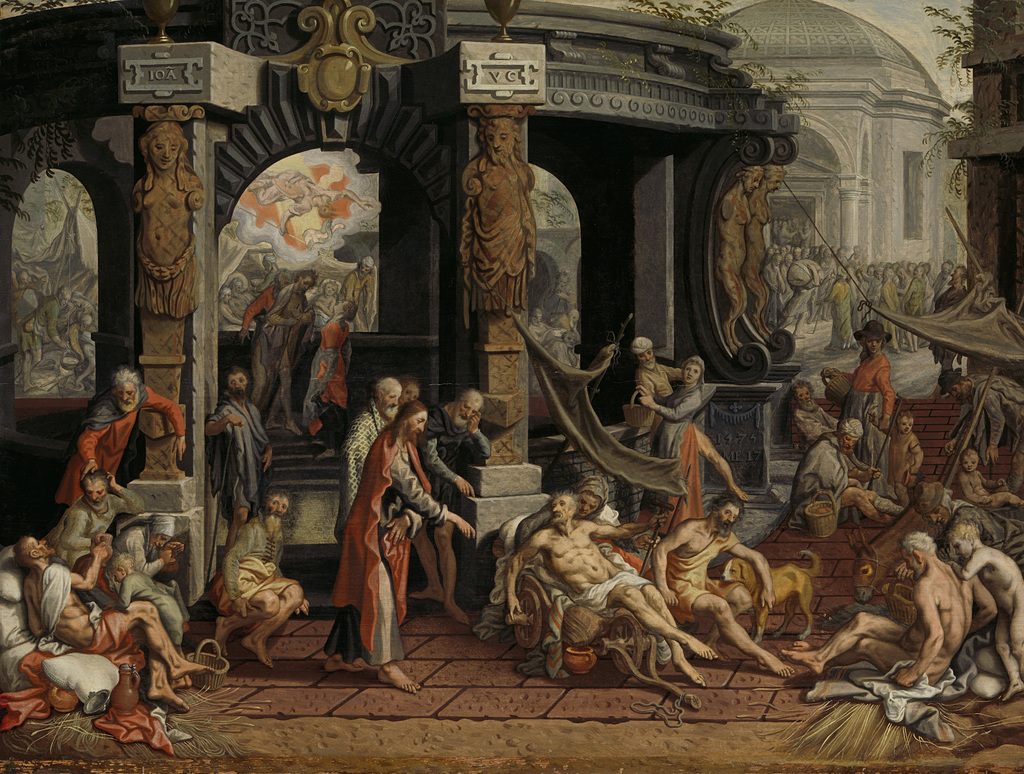We discuss here the second of three parts of the chapter about "scriptural fulfillments" in Nanine Charbonnel's Jésus-Christ, Sublime Figure de Papier . . .
. . .
The Jewish Scriptures spoke of times that were supposed to be fulfilled in coming days and in the text of the New Testament we read of those events having been fulfilled.
What is going on here? Nanine Charbonnel (NC) picks up from her earlier discussion of “midrash” and other specifically Hebrew techniques [the links below take you to posts where that earlier discussion was presented here] and begins to show how they apply to the creation of Jesus in the gospels.
- Jésus-Christ, Sublime Figure de Papier. Chap 2a. The Sacred and Creative Power of the Hebrew Text
- Jésus-Christ, Sublime Figure de Papier. Chap 2b. A God Bound to the Mechanics of Language
- Jésus-Christ, Sublime Figure de Papier. Chap 3a. Representing a Collective in a Single Individual
- Jésus-Christ, Sublime Figure de Papier. Chap 3b. Creative Intertextuality
- Jésus-Christ, Sublime Figure de Papier. Chap 3c. … Word Play Undermining Historicity
- Jésus-Christ, Sublime Figure de Papier. Chap 3d … Metaphors of Exodus and Lion Dens Become History
- Jésus-Christ, Sublime Figure de Papier. Chap 3e … A Different Kind of Literary Heritage
The word of God has the power to create its own fulfilment
Readers of the Jewish Scriptures were confronted with passages such as Isaiah 55:11
. . . my word that goes out from my mouth:
It will not return to me empty,
but will accomplish what I desire
and achieve the purpose for which I sent it.

There is a point of Hebrew grammar here that needs some explanation because it is quite unlike anything in English.
Our verbs have tenses, most simply, past, present and future. Hebrew verbs don’t, well not quite. Instead, they express either completed and incomplete actions, perfect and imperfect. The perfect form or completed action can be translated as the past tense: e.g. I said, I have said, etc.; the imperfect or incomplete action can be translated as either the present or future tense: e.g. I shall say, I am saying, etc.
But there’s a catch. The little consonant, waw = ו (meaning “and”), just to make it interesting, can be added to either of these Hebrew “tenses” and reverse them! So a ו added to a perfect verb (I said) turns it into a present or future tense; and a ו added to an imperfect (future tense) turns it into a past or perfect tense.
Such is my no doubt very simplistic and overly simplistic explanation of the little I have read about Hebrew and what I gleaned from NC’s discussion of that particular point.
The point is that Hebrew expressions can be ambivalent about when, or the time, they are supposed to refer to. Many of us are aware, for example, of how a passage translated in the past tense in the Bible is understood by the reader to refer to a future event.
I better stop here before I get myself in over my head. It’s a long time since I’ve attempted to learn any basic Hebrew. But I am reasonably confident that the above is more or less how Hebrew works and what NC is addressing.
And Jeremiah 1:12
Then the Lord said to me, “You have seen well, for I am ready to perform My word.”
Then Jeremiah 33:
14 ‘Behold, the days are coming,’ says the Lord, ‘that I will perform that good thing which I have promised to the house of Israel and to the house of Judah:
15 ‘In those days and at that time
I will cause to grow up to David
A Branch of righteousness;
He shall execute judgment and righteousness in the earth.
16 In those days Judah will be saved,
And Jerusalem will dwell safely.
And this is the name by which she will be called:
THE LORD OUR RIGHTEOUSNESS.’
That “I will perform” is an instance of that waw at work: וַהֲקִֽמֹתִי֙ — so the past or perfect tense (have performed) is transformed into a present or future tense (will perform).
The Church Fathers were aware of this linguistic aspect of the Hebrew. Irenaeus explains it in his Discourse in Demonstration of the Apostolic Preaching, para 67:
At this point let us speak of His healings. Isaiah says thus:
He took our infirmities and bare our sicknesses: (Isa. liii. 4)
that is to say, He shall take, and shall bear. For there are passages in which the Spirit of God through the prophets recounts things that are to be as having taken place. For that which with God is essayed and conceived of as determined to take place, is reckoned as having already taken place: and the Spirit, regarding and seeing the time in which the issues of the prophecy are fulfilled, utters the words (accordingly).
Eschatological expectation
NC stresses the importance of “the intensity of eschatological anticipation” in Israel from the time of their Babylonian exile and especially through to the time of Daniel and no doubt at the time of the Roman conquest and plundering of the Jerusalem temple in 63 BCE. The great sociologist Max Weber’s testimony is brought in to emphasize the point.
Peculiar for the Israelite expectation is the increasing intensity with which paradise, or the savior prince, were projected into the future: the first out of the past, the last out of the present. This did not happen in Israel alone, but this expectancy has never become central to religious faith with such obviously ever-increasing momentum. Yahwe’s old berith with Israel, his promise in conjunction with the criticism of the miserable present made this possible. But only the momentum of prophecy made Israel to this unique degree a people of “hope” and “tarrying” (Gen. 49: 18).
(Weber, 233)
This messianic hope in the life of Israel was “messianic”. An ideal figure, an “anointed” one, was “typically Jewish”, we might say. What made the Messiah or Christ figure of Christianity so different was that this figure was to be preached to the entire world, to all nations; he transcended “the Jewish people”. Jesus will be the “anointed” (=”messiah”, “christ”) for all of humanity, not just the Jews. This is the message of “Third Isaiah” — Isaiah 56-66.
For the sake of a refresher here are some passages from those chapters (though not quoted by NC here): Continue reading “How the Gospels Became History”

